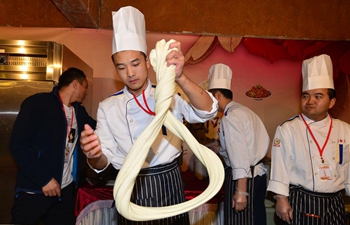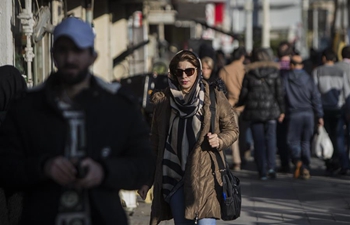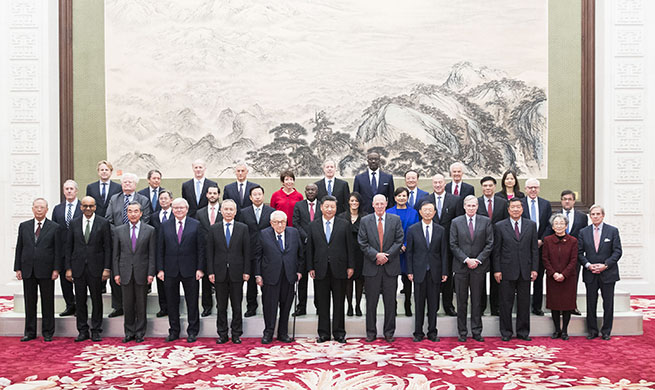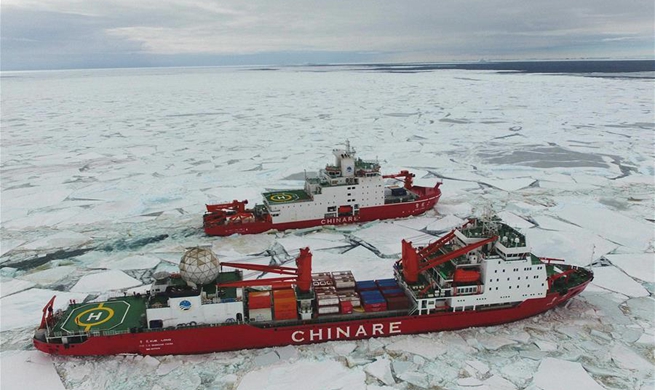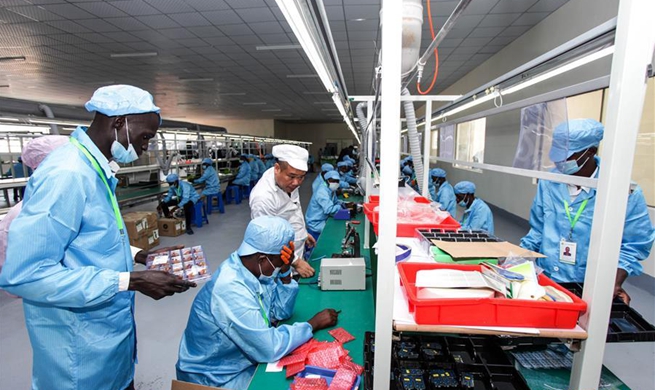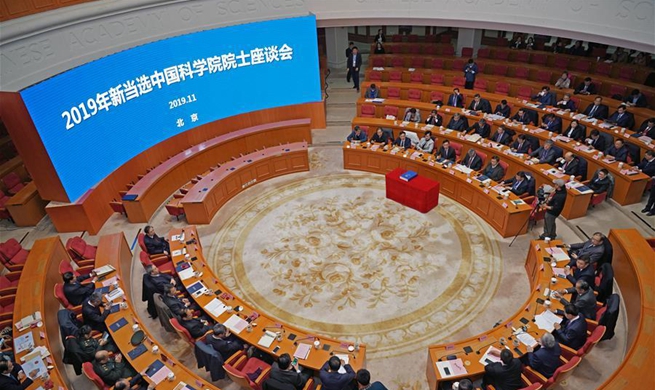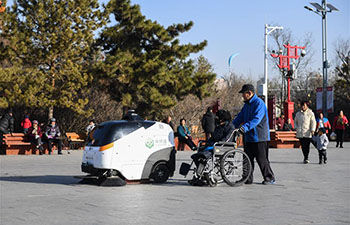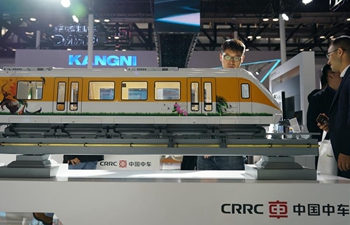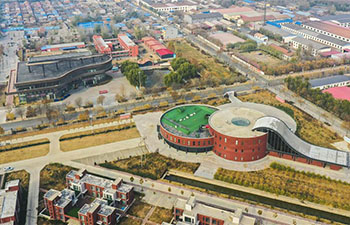TOKYO, Nov. 22 (Xinhua) -- The Japanese government said Friday that an intelligence-sharing pact with South Korea will not be ended, with Seoul in the 11th hour before the pact was to expire informing Tokyo that its had conditionally suspended its prior decision to end the agreement.
The General Security of Military Information Agreement, known as GSOMIA, is a bilateral military intelligence-sharing accord signed between both countries in November 2016, which has enabled the two neighbors to share military information.
The accord comes up for renewal each year, but can be cancelled by either party giving notice by Aug. 24, which South Korea had done prior to its sudden reversal Friday.
Japan had been urging South Korea not to cancel the pact and had called on South Korea to "act prudently" regarding the pact, with Seoul suggesting its decision to scrap the pact could be reviewed if Japan undoes its tightening of export controls on South Korea.
Japan's trade ministry has said it will hold a policy dialogue with Seoul on its tighter screening of exports to South Korea, with the talks being conducted at bureau-chief level, Japan's public broadcaster NHK reported Friday evening.
Japan's trade ministry reportedly agreed to the meeting owing to South Korea expressing a new commitment to its monitoring of trade.
But while Seoul has announced a halt to the dispute-settlement process at the World Trade Organization, the trade ministry here said that the agreement to hold talks on export controls is not necessarily directly connected to Friday's announcement by Seoul to temporarily extend the intel-pact with Tokyo, sources close to the matter here said.
Japanese Prime Minister Shinzo Abe, meanwhile, said Friday that he believes that South Korea's 11th hour move to extend the intel-pact with Japan was a "strategic" one.
Abe said he had repeatedly stressed to South Korea, in regards to the intelligence-sharing agreement, the importance of bilateral as well as trilateral cooperation involving the United States in addressing regional issues.
"It's extremely important for Japan and South Korea, as well as the United States, to cooperate… I have repeatedly made that clear," the Japanese premiere said.
"South Korea is believed to have made its decision (over GSOMIA) from such a strategic point," Abe added.
The previous discord over the intel-pact is a result of sinking ties between Tokyo and Seoul owing to a wartime labor dispute between both sides spilling over into a bitter tit-for-tat trade and military dispute.
Japan has stuck to its line that rulings made by South Korea's top courts for Japanese firms to pay compensation to the plaintiffs connected to a row over forced wartime labor, are not in line with international law and run contrary to the foundation of friendly and cooperative relations between the two neighbors since the 1965 normalization of diplomatic ties.
Japan, however, used vast numbers of forced laborers during its brutal 1910-1945 colonial rule of the Korean Peninsula, although has consistently maintained that the matter of compensation for this was "finally and completely" resolved under the pact and has since doubled-down on its belief that the rulings contravene international law.
As tensions escalated between both sides following the wartime labor row, Japan hit back with tighter export controls on some materials used in high-tech products by South Korean firms, including some essential for use in smartphone displays and chips, mainstays of South Korea's tech-forward economy and integral to some key supply chains that flow from Japan and through South Korea onward.
It went on to remove South Korea from its "whitelist" of nations entitled to simplified export control procedures, with the removal of South Korea from the list marking the first time Japan has revoked a countries' trusted trade status.
Seoul had been on the "whitelist" since 2004 and had been guaranteed preferential treatment in terms of importing certain products from Japan.
South Korea retaliated by taking Japan off of its own "whitelist" of trusted trade partners and announced tighter restrictions on certain imports from Japan, including coal ash and some waste recycling materials.
It followed up by announcing its decision to scrap the GSOMIA with Japan, on exchanging classified military information, as the tit-for-tat dispute escalated.
The pact between both sides would have lapsed at midnight, had South Korea not decided to conditionally extend the key military pact with Japan on Friday.
